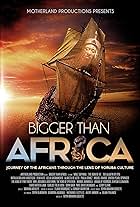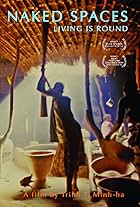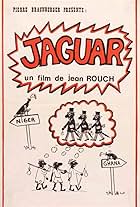Advanced search
- TITLES
- NAMES
- COLLABORATIONS
Search filters
Enter full date
to
or just enter yyyy, or yyyy-mm below
to
to
to
Exclude
Only includes titles with the selected topics
to
In minutes
to
1-50 of 129
- A historical epic inspired by true events that took place in The Kingdom of Dahomey, one of the most powerful states of Africa in the 18th and 19th centuries.
- The journey of 26 plundered royal treasures from the Kingdom of Dahomey exhibited in Paris, now being returned to Benin. Diop artistically voices a new generation's demands.
- During the 1800s, paroled Brazilian bandit Cobra Verde is sent to West Africa with a few troops to man an old Portuguese fort and to convince the local African ruler to resume the slave trade with Brazil.
- Alice and Louis are estranged siblings who have been avoiding each other for over twenty years and are forced to reunite after a tragedy.
- A cynical Welsh hotel owner secretly romances a diplomat's wife in Haiti, under the violent reign of the despot "Papa Doc" Duvalier.
- Three people, three stories, one thing in common: Africa.
- When the harmony in a village is threatened by outside elements, two sisters must fight to save their people and restore the glory of a mermaid goddess to the land.
- Talking Money is an observational documentary shot at bank consultation tables all over the world. From Bolivia to Pakistan, Benin to Switzerland, men and women sit down across from their neighborhood bankers to discuss the intimacies of their financial lives. Far from the glamour of distant Wall Street, this is the reality of personal banking, where one's life problems are a matter of business. In 15 spontaneously recorded encounters, the bank table turns into a stage for confessions and masquerades, where consultants and clients try their best to look solid and trustworthy. Filming entirely from the bank's side of the table, Sebastian Winkels offers the audience a place in a bizarre power play, exploring a complicated inter-relationship called 'money'. A multi-voiced commentary on capitalism that reveals how the invisible power of money works on all of us, no matter who and where we are.
- Documentary about the production behind The Comedians (1967), which was filmed in Benin (what was then called Dahomey).
- A very interesting documentary since many people have no idea of the meaning of voodoo since it has a bad concept of pornography and really does not know the depth of each religious or believer.
- What do the Shroud of Turin, Elvis's Graceland, and a flag flown barely a moment over the U.S. Capitol have in common. Mana - that sacred, spiritual power thought to reside in a person, place or thing. Belief is not just religion, say filmmakers Friedman and Manley. It drives the stock market; it determines how we encapsulate history and our personal memories. It underlies racism and war... A trip around the amazing world of power objects, from the sacred to the absurd.
- The drama led documentary series presents history's most iconic female fighters. Each extraordinary tale of blood, sacrifice and endurance centres on the life of one young woman warrior caught up in the bloody struggles of her time.
- In the streets of Paris, Juste collects the last memory of people only he can see, before helping them into the afterlife. Juste is a ghost. But one day Agathe recognizes him. She knew him when he was alive.
- When the slave boats docked in the Americas, Cuba and the Caribbean, hundreds of cultures and religions came with the Africans but only one survived the plantations. To date, the most pronounced African Culture of the Diasporas remains the culture of the Yoruba. From Brazil to Trinidad, the United States to Cuba, Haiti and the entire Caribbean, this West African culture dominates all other Cultures of Africa and could be said to have survived the plantations for hundreds of years. Bigger Than Africa follows the trans-Atlantic slave trade route from West Africa to six different countries-- USA, Nigeria, Brazil, Republic of Benin, Trinidad and Tobago and Cuba-- to explore and find reasons for the survival of this particular West African Culture.
- A unique hospital ship offering life saving surgery sets sail along the coast of West Africa Africa. They have just one year to do the impossible - to provide the care these people cannot get any other way. On board are volunteer doctors and nurses - now headed straight for the biggest medical and ethical challenges of their lives. Ahead lies illnesses, many they have never seen outside of textbooks. A dramatic journey is underway as they deal with life and death cases and join with patients to transform lives.
- When Lena and Ulli start the engine of their old Land Rover, Lady Terés, they have a plan: to drive from Hamburg to South Africa in six months. What they don't know yet is that they won't ever get there. Two totally different characters, jammed together in two square meters of space for almost two years, they experience what it really means to travel: leaving your comfort zone for good. Starting in Morocco, they quickly dive into the life of locals they meet on the road: Jamal, a Moroccan Berber who lives with his dromedaries in the Sahara, Ziza, a Mauritanian musician who fights against suppression from the government, Mame Sy, a mother who set up a private school for the poorest of the poor in Mauritania - and many more. Their journey leads them through the vibrant green canyons of Guinea, the scorching heat of Mali, and the amazing surf of Sierra Leone and Liberia. Everywhere they are, the two Germans make contact with the locals and demonstrate that real travelling is about more than plain sightseeing. But their long journey doesn't spare them the dark side of travelling: they are also confronted by corruption, sickness and even death. Setting out to discover a continent, their trip leads them down a very different road. One they did not expect: the journey to their true inner selves.
- Gary Barbar, a troubled Marine Transportation Management teacher, embarks on a journey to Benin as the reincarnation of Ifagbai, seeking answers and reuniting with his love, Esohe.
- From the 16th to the 19th century millions of black Africans were sold into slavery and forcibly taken to Brazil. The Orishás, their gods, crossed the Atlantic with them. Life depends upon them. In a trance the Orishás become incarnate. Black Brazilians Geralda, Tanja and Roseli, initiates of Candomblé, the cult of Orishás, travel from Brazil to Benin, Africa, to a meeting with their most distant relatives and their shared gods. A journey to the source of their identity and their religion. Back to the roots. 'Trance-Atlantic' follows an arc between continents and links the two ends of the umbilical cord accompanied by the sound of drums and the circle dance of the Orishás, who are visible in the trance.
- Explores the rhythm and ritual life in the rural environment of six West African countries: Mauritania, Mali, Burkina Faso, Togo, Benin, and Senegal.
- As a young man, Ike Nnaebue tried to flee to Europe. Twenty years later, he retraces the steps of his journey back then to find out what motivates people today to expose themselves to the dangers of a passage into an uncertain future.
- Four women from different regions develop friendships during a bus journey across West Africa, as they accomplish an everyday journey while facing the universal challenge of being independent women.
- It was from Dahomey (now Benin, Africa) that the cult of the deads was exported - through the slave trade - to Brazil, and Haiti. The film narrates the modern story of this ethnographical, religious culture. A team of initiates could film troubling images documenting initiation ceremonies and the sacred lethargy that can take as much as seven, or even eleven days, and in which the body started decomposing itself. Then, the resuscitation happens...
- The adventures of three young men who leave their homeland Savannah, Niger, and go looking for fortune in Ghana.
- By following the work carried out in collaboration with the Zinsou Foundation and photographer J.D Burton at the heart of Voodoo, we dive into Africa's vibrant living culture, as well as the roots of the slave trade. With African voices.
- Portraits of contemporary African women from four West African nations: Burkina Faso, Mali, Senegal and Benin.























